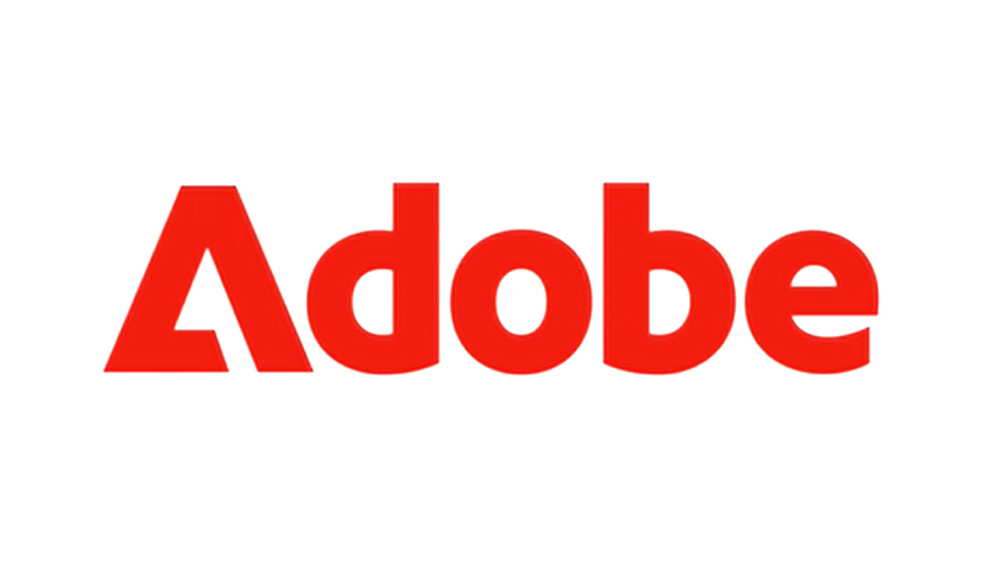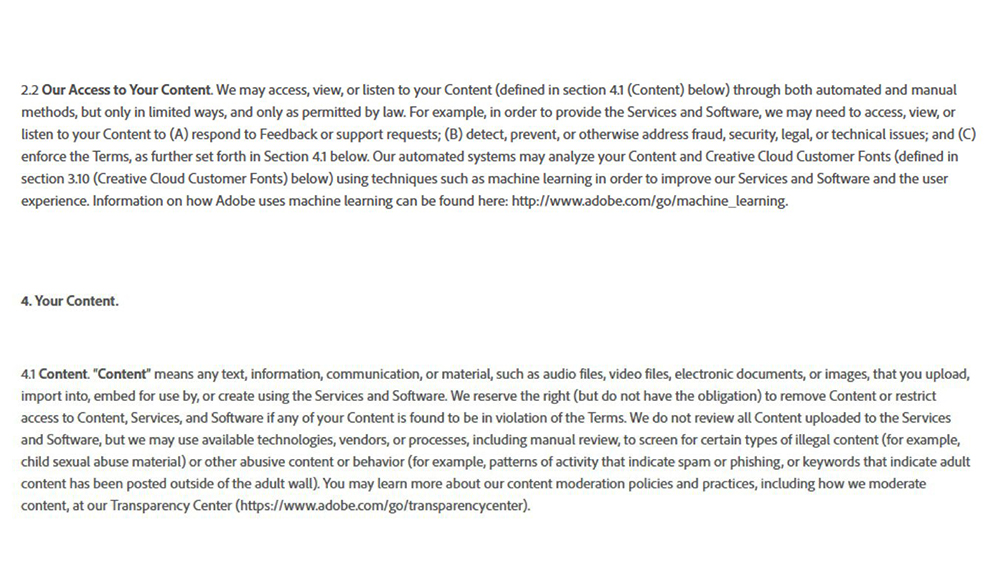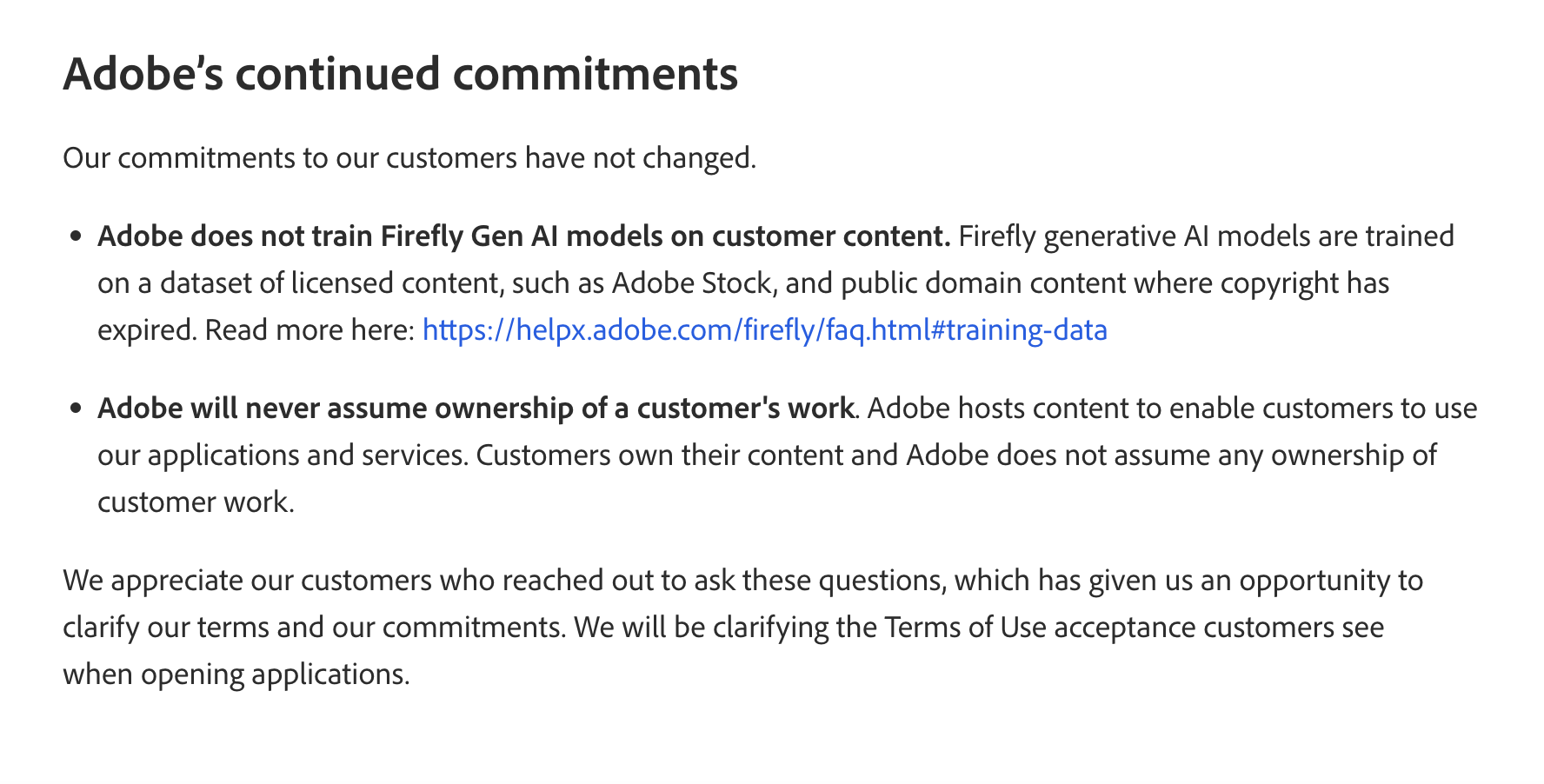The Adobe AI backlash should be a warning to every tech brand
Trust can’t be generated artificially.

If you're a creative (and you haven't been living under an AI-generated rock), you've probably encountered the backlash faced by Adobe in response to changes to its terms of service in recent days. To recap, users received a notification to that terms had been updated to include clarification that the company can access users content "through both manual and automated methods," leading many to speculate that Adobe could access anything we create – and potentially use it to train its AI.
Adobe quickly back-pedalled. After telling Creative Bloq the policy had been in place for "several years" and that the tweaked wording was all in the name of transparency. But days later it was compelled to publish a blog post explaining the changes.


Adobe offered side-by-side comparisons of the wording of the TOS, showing that little had actually been changed. And in the blog post, it clarified that Adobe does not train Firefly Gen AI models on customer content. "Firefly generative AI models are trained on a dataset of licensed content, such as Adobe Stock, and public domain content where copyright has expired," Adobe claims (although some artists have questioned this in recent months).

Adobe's Chief Strategy Officer Scott Belksy responded on X, admitting that "trust and transparency couldn’t be more crucial these days, and we need to be clear when it comes to summarizing terms of service in these pop-ups."
is this real @Adobe pic.twitter.com/Ed1OPZhJBUJune 6, 2024
Which is arguably the crux of the problem here, and something every tech brand should take warning from. As AI becomes more ubiquitous and simultaneously harder to spot, trust is becoming more important than ever. And from its controversial cancellation policy to rumours that even its internal staff aren't loving the company's AI strategy, trust isn't something the company has in abundance right now.
But Adobe isn't alone in courting AI controversy. From Instagram to Disney, several huge tech and entertainment companies have been forced to explain and in some cases apologise for unclear use of AI. And with Apple said to be entering the AI game in a big way this week, the tech is only going to become more widespread. If these companies want to maintain their users' confidence, trust and transparency is only going to increase in importance.
Get the Creative Bloq Newsletter
Daily design news, reviews, how-tos and more, as picked by the editors.

Thank you for reading 5 articles this month* Join now for unlimited access
Enjoy your first month for just £1 / $1 / €1
*Read 5 free articles per month without a subscription

Join now for unlimited access
Try first month for just £1 / $1 / €1

Daniel John is Design Editor at Creative Bloq. He reports on the worlds of design, branding and lifestyle tech, and has covered several industry events including Milan Design Week, OFFF Barcelona and Adobe Max in Los Angeles.
